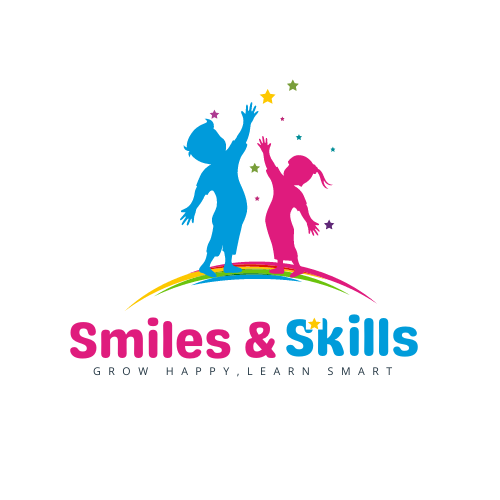Science is fun and exciting. Toddlers love exploring the world around them. Here are some simple science experiments for toddlers. These activities are safe and educational. They will keep your little ones engaged.
Why Science Experiments are Important for Toddlers
Science experiments teach kids about the world. They learn how things work. These activities help build curiosity. Kids ask questions and find answers. Science also helps develop problem-solving skills. It’s never too early to start learning.

Credit: busytoddler.com
Easy and Fun Science Experiments for Toddlers
Here are some easy science experiments. They use common household items. You can do them at home. Let’s get started!
1. Volcano Eruption
This is a classic science experiment. Kids love watching the volcano erupt. It’s simple and fun.
Materials:
- Small plastic bottle
- Baking soda
- Vinegar
- Dish soap (optional)
- Red food coloring (optional)
Instructions:
- Place the bottle on a tray or in a bowl.
- Fill the bottle halfway with vinegar.
- Add a few drops of dish soap and food coloring.
- Quickly add a spoonful of baking soda.
- Watch the volcano erupt!
2. Magic Milk
This experiment shows how soap affects milk. It’s colorful and magical.
Materials:
- Plate
- Milk
- Food coloring
- Dish soap
- Cotton swabs
Instructions:
- Pour milk onto the plate.
- Add a few drops of food coloring.
- Dip a cotton swab in dish soap.
- Touch the milk with the soapy swab.
- Watch the colors dance!
3. Floating And Sinking
Learn about buoyancy with this simple experiment. Find out which objects float or sink.
Materials:
- Large bowl or container
- Water
- Various small objects (e.g., rock, cork, plastic toy)
Instructions:
- Fill the bowl with water.
- Gather various small objects.
- Guess if each object will float or sink.
- Place each object in the water.
- See which objects float and which sink.
4. Rainbow In A Jar
Create a colorful rainbow in a jar. It’s beautiful and educational.
Materials:
- Clear jar or glass
- Water
- Food coloring
- Honey
- Dish soap
- Oil
Instructions:
- Pour honey into the jar.
- Add dish soap gently.
- Mix water with food coloring and pour it in.
- Slowly add oil on top.
- Watch the colorful layers form a rainbow.
5. Dancing Raisins
Watch raisins dance in this fun experiment. It’s simple and surprising.
Materials:
- Clear glass
- Soda water
- Raisins
Instructions:
- Fill the glass with soda water.
- Drop a few raisins into the glass.
- Watch the raisins dance up and down.
6. Color Mixing
Learn about colors by mixing them. This experiment is easy and colorful.
Materials:
- Clear cups
- Water
- Food coloring
Instructions:
- Fill three cups with water.
- Add red food coloring to one cup.
- Add blue food coloring to another cup.
- Add yellow food coloring to the last cup.
- Mix the colored water to create new colors.
7. Ice Melting
Discover how salt affects ice. This experiment is simple and cool.
Materials:
- Ice cubes
- Salt
- Tray or plate
Instructions:
- Place ice cubes on a tray or plate.
- Sprinkle salt on the ice cubes.
- Watch the ice melt faster.
8. Balloon Rocket
Make a balloon rocket and learn about air pressure. This experiment is exciting and fun.
Materials:
- Balloon
- String
- Straw
- Tape
Instructions:
- Thread the string through the straw.
- Tie the string between two objects (e.g., chairs).
- Inflate the balloon but don’t tie it.
- Tape the balloon to the straw.
- Release the balloon and watch it fly.

Credit: m.youtube.com
Conclusion And Tips
Science experiments for toddlers can be both fun and educational. These activities spark curiosity and encourage learning. Below are some tips to make the most of these experiments.
Encouraging Curiosity
Encourage toddlers to ask questions. Simple questions can lead to big discoveries. Always be ready to explore their answers. Use open-ended questions like “What do you think will happen?” or “Why do you think this happened?”
Provide a variety of materials. Let them touch, see, and even smell different items. This hands-on approach helps toddlers understand concepts better. Explain things in simple terms. Use everyday language they can understand.
Keeping It Fun
Keep activities short and engaging. Toddlers have short attention spans. Aim for 10-15 minute sessions. Use bright colors and fun objects to keep their interest. Make sure experiments are safe and mess-free.
Get creative with the activities. Use household items for experiments. For example, use baking soda and vinegar for a fun reaction. Turn everyday moments into science lessons.
| Tip | Description |
|---|---|
| Be Patient | Give them time to explore and learn at their own pace. |
| Stay Involved | Participate in the experiments to guide and encourage them. |
| Celebrate Success | Cheer for their efforts and discoveries to build confidence. |
Follow these tips to make science fun for your toddler. Happy experimenting!
Frequently Asked Questions
What Are Easy Science Experiments For Toddlers?
Simple experiments like vinegar and baking soda reactions are easy and safe.
How To Introduce Science To Toddlers?
Use fun, hands-on activities like mixing colors or growing beans.
Are Science Experiments Safe For Toddlers?
Yes, with supervision and age-appropriate materials, they are safe.
What Materials Are Needed For Toddler Experiments?
Common household items like baking soda, vinegar, and food coloring.
Conclusion
Science experiments are fun and educational. They help toddlers learn about the world. These simple activities use common household items. Try them with your little ones. They will have fun and learn at the same time. Happy experimenting!
